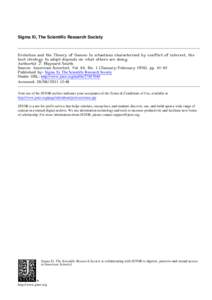 Date: 2011-08-28 15:33:51Biology Science Evolutionary biologists Fellows of the Royal Society Selection Evolutionarily stable strategy Evolution and the Theory of Games War of attrition Sex ratio Game theory Evolutionary biology Evolutionary game theory | |  Sigma Xi, The Scientific Research Society Evolution and the Theory of Games: In situations characterized by conflict of interest, the best strategy to adopt depends on what others are doing Author(s): J. Maynard Smith S Sigma Xi, The Scientific Research Society Evolution and the Theory of Games: In situations characterized by conflict of interest, the best strategy to adopt depends on what others are doing Author(s): J. Maynard Smith S
Add to Reading ListSource URL: academic.reed.eduDownload Document from Source Website File Size: 923,61 KBShare Document on Facebook
|

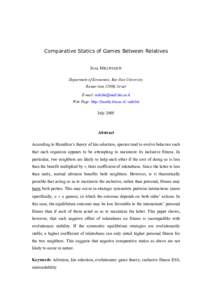
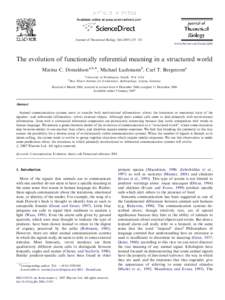
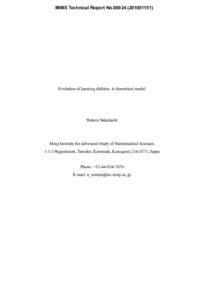
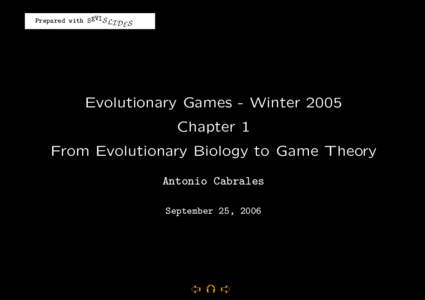
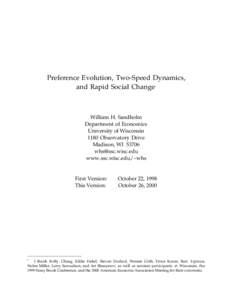
 Sigma Xi, The Scientific Research Society Evolution and the Theory of Games: In situations characterized by conflict of interest, the best strategy to adopt depends on what others are doing Author(s): J. Maynard Smith S
Sigma Xi, The Scientific Research Society Evolution and the Theory of Games: In situations characterized by conflict of interest, the best strategy to adopt depends on what others are doing Author(s): J. Maynard Smith S